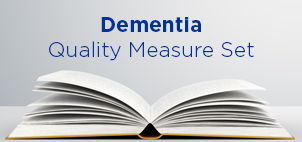What are DSM disorders? The new Diagnostic Statistical Manual — the DSM -V — has officially been released by the American Psychiatric Association. So what does it say about postpartum depression?

Not what I thought it would. Making news headlines, in the American Psychiatric Association (APA) released the fifth edition of the Diagnostic and Statistical Manual of Mental Disorders ( DSM - ). Postpartum Support International and the DSM 5. Peripartum onset is defined as starting anytime during pregnancy or within the four weeks following delivery. There is no longer a distinction made between depressive episodes that occur during pregnancy or those that occur after delivery. Depression During Pregnancy and after Childbirth.
For most women, having a baby is a very exciting, joyous, and often anxious time. But for women with postpartum , or peripartum, depression it can become very distressing and difficult. Untreated postpartum depression can last for months or longer, sometimes becoming a chronic depressive disorder. Up to of women will experience a major depressive episode during pregnancy or in the first year following delivery. The DSM - outlines the following criterion to make a diagnosis of depression.

The individual must be experiencing five or more symptoms during the same 2-week period and at least one of the symptoms should be either (1) depressed mood or (2) loss of interest or pleasure. Clinically, the modified postpartum-onset specifier would likely facilitate early detection and diagnosis, as well as appropriate and safe treatment of bipolar II postpartum depression. It helps provide an official postpartum depression psychiatric diagnosis because it allows the patient to more fully understand their condition. A postpartum depression diagnosis reached using the DSM - also helps families.
Pregnant women and their families have lots of aspirations from the postpartum perio which is colored by the joyful arrival of a new baby. Unfortunately, women in the postpartum period can be vulnerable to a range of psychiatric disorders like postpartum blues, depression , and psychosis. If left untreate postpartum depression is associated with potentially adverse consequences for the mother, her infant, and her family.

Some new moms worry they will hurt themselves or their babies. Unlike the baby blues, postpartum depression does not go away quickly. Very rarely, new moms develop something even more.
However, some experts argue that it can take up to six months for parents to notice these symptoms. Becoming a parent or adding more children to the family is an emotional time. While some women are predisposed to experiencing postpartum depression , PPD can affect anyone, including women who experience a normal delivery and give birth to a healthy child. Since a personal history of depression can increase the risk of postpartum depression , let your doctor know if you have struggled with depression or anxiety in the past.
A new baby is a thrilling occasion for any parent. But the thought of added responsibility, bringing up a chil building your life around it, social and financial changes due to this…all this can be quite over whelming, especially for a mother who has just given birth. How did you know you had postpartum depression ? Last month in PEOPLE magazine Chrissy Teigen revealed that it was her lack of interest in food that.
There are many factors that are thought to contribute to the symptoms of postpartum depression (PPD), but the exact cause is unknown. Some of these factors are a family or personal history of depression , increased life stressors, and hormone changes related to pregnancy.
No comments:
Post a Comment
Note: Only a member of this blog may post a comment.